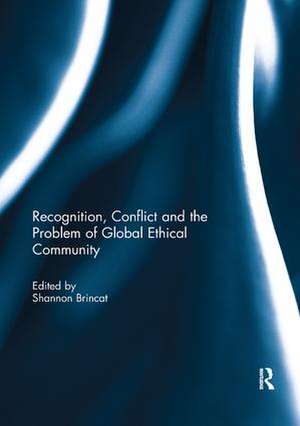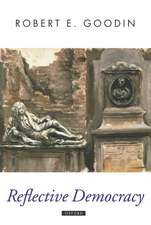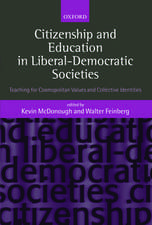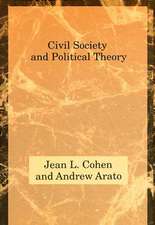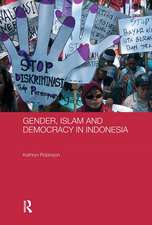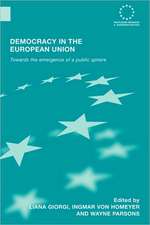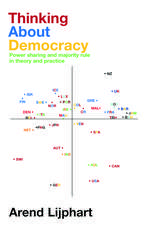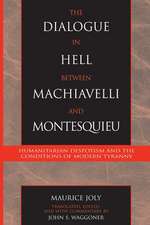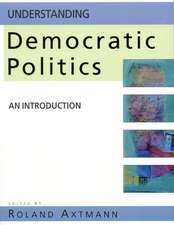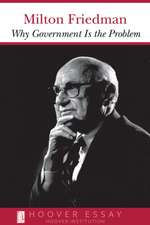Recognition, Conflict and the Problem of Global Ethical Community
Editat de Shannon Brincaten Limba Engleză Paperback – 24 mai 2017
This volume brings together leading scholars of recognition theory in international relations, sociology and politics, to discuss the potential for recognition to understand the problem of conflict and the possibilities in developing global ethical community.
This book was published as a special issue of Global Discourse.
| Toate formatele și edițiile | Preț | Express |
|---|---|---|
| Paperback (1) | 216.07 lei 6-8 săpt. | |
| Taylor & Francis – 24 mai 2017 | 216.07 lei 6-8 săpt. | |
| Hardback (1) | 496.53 lei 6-8 săpt. | |
| Taylor & Francis – 17 apr 2015 | 496.53 lei 6-8 săpt. |
Preț: 216.07 lei
Preț vechi: 258.66 lei
-16% Nou
Puncte Express: 324
Preț estimativ în valută:
41.35€ • 42.65$ • 34.50£
41.35€ • 42.65$ • 34.50£
Carte tipărită la comandă
Livrare economică 26 martie-09 aprilie
Preluare comenzi: 021 569.72.76
Specificații
ISBN-13: 9781138060418
ISBN-10: 1138060410
Pagini: 152
Dimensiuni: 174 x 246 mm
Greutate: 0.45 kg
Ediția:1
Editura: Taylor & Francis
Colecția Routledge
Locul publicării:Oxford, United Kingdom
ISBN-10: 1138060410
Pagini: 152
Dimensiuni: 174 x 246 mm
Greutate: 0.45 kg
Ediția:1
Editura: Taylor & Francis
Colecția Routledge
Locul publicării:Oxford, United Kingdom
Cuprins
1. Introduction: Recognition, conflict and the problem of ethical community Shannon Brincat 2. Shame and recognition: the politics of disclosure and acknowledgement Julie Connolly Reply: Shame and recognition: the politics of disclosure and acknowledgement: a reply to Julie Connolly Tony Castleman 3. Al-Muhajiroun in the United Kingdom: the role of international non-recognition in heightened radicalization dynamics Maéva Clément Reply: Terrorism, discourse and analysis thereof: a reply to Clément Lee Jarvis 4. Recognition and the origins of international society Erik Ringmar Reply: Recognition and the origins of international society: a reply to Erik Ringmar John M. Hobson 5. Treating Asian nations with respect: promises and pitfalls of status recognition Reinhard Wolf Reply: Treating Asian nations with respect: promises and pitfalls of status recognition: a reply to Reinhard Wolf Michael Clarke 6. Interest, passion, (non)recognition, and wars: a conceptual essay Thomas Lindemann Reply: Recognizing non-recognition: a reply to Lindemann Brent J. Steele 7. (Dis-)respect and (non-)recognition in world politics: the Anglo-Boer war and German policy at the turn of the nineteenth/twentieth century Lena Jaschob Reply: (Dis-)respect and (non-)recognition in world politics: the Anglo-Boer War and German policy at the turn of the nineteenth/twentieth century: a reply to Lena Jaschob Bill Nasson 8. Killing without hatred: the politics of (non)-recognition in contemporary Western wars Mathias Delori Reply: Killing without hatred: the politics of (non)-recognition in contemporary Western wars: a reply to Mathias Delori Kamil Shah
Descriere
This volume brings together leading international scholars of recognition theory in world politics to discuss the potential for recognition to pacify relations between states, groups and individuals and to develop recognition processes in the global community.
This book was published as a special issue of Global Discourse.
This book was published as a special issue of Global Discourse.
